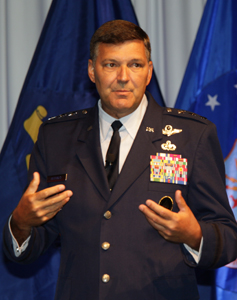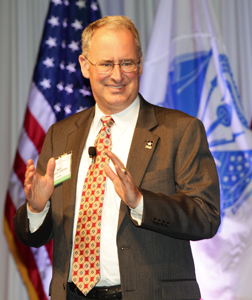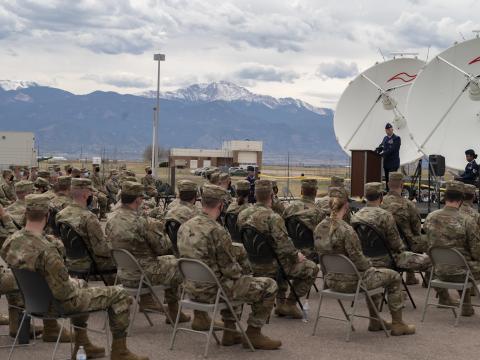Budget Cuts Dominate the Future Defense Landscape
 |
| Lt. Gen. Bradley A. Heithold, USAF, vice commander, U.S. Special Operations Command, discussed the effects of the budget on special operations forces during his presentation at TechNet Land Forces South. |
Online Show Daily: TechNet Land Forces South, Day Two
Several themes emerged during the second day of TechNet Land Forces South in Tampa, Florida, but the most dominant topic was the budget. Lt. Gen. Bradley A. Heithold, USAF, vice commander, U.S. Special Operations Command (SOCOM), discussed the implications the funding cuts will have on special operations forces (SOF). As one of the people involved in drafting the new budget, he assured the audience that every choice was made carefully with focus on critical objectives. The SOF budget grows under the new plan as force numbers increase toward 12,000 troops.
Gen. Heithold also discussed the advantages of full-motion, high-definition video on the battlefield and the future expansion of the technology. Several presenters throughout the day touched on the capability, including Col. David W. McMorries, USMC, former Regional Command Southwest C-6/II Marine Expeditionary Force G-6. He now is preparing to take command of the Marine Corps Network Operations and Security Center. One of the colonel’s points during his presentation is that full motion video is expanding beyond its use today. He also talked about SOF, saying integrating with them can be harder than integrating coalition forces because of the covert nature of their operations. However, it would be beneficial for situational awareness if commanders know when SOF are operating within their regions.
Col. McMorries said U.S. organizations can learn from foreign partners about dealing with restricted budgets. Tighter resources can equal better control, he explained. The colonel also was able to elucidate about how hot news at home affected troops in theater. In regards to Pakistan’s previous closure of U.S. supply routes into Afghanistan, Col. McMorries stated, “I was kind of surprised how little it affected us.” He attributed the minimum of negative consequences to good work by logisticians.
 | |
| Michael Krieger, deputy chief information officer/G-6 of the U.S. Army, said cost benefit analysis is driving procurement decisions within his organization. |
Maj. Gen. (Sel.) Michael J. Kingsley, USAF, vice commander, U.S. Air Force Special Operations Command, added to the full-motion video discussion talking about how it opens new capabilities. He highlighted its particular value in hunting terrorists.
During the day’s panel discussion, speakers returned to the budget issue. Brig. Gen. Mike Lee, USAF (Ret.), partner, National Security, Blue Canopy, stated that upcoming monetary constraints might force the military to alleviate some of its cumbersome policies. Fellow panelist Patrick Finn, a senior vice president focused on U.S. federal work at Cisco Systems, Incorporated, said that in the past focus has been placed on optimizing components, which sub-optimizes overall systems. With reduced budgets, a key to success involves optimizing holistic systems. The military and supporters should take a holistic approach with a joint focus toward technology, he stated. William Rowan, vice president, U.S Department of Defense team, VMWare, Incorporated, added that defense agencies and commands also need to share their analyses of how to optimize, rather than repeating the same processes many times individually.



